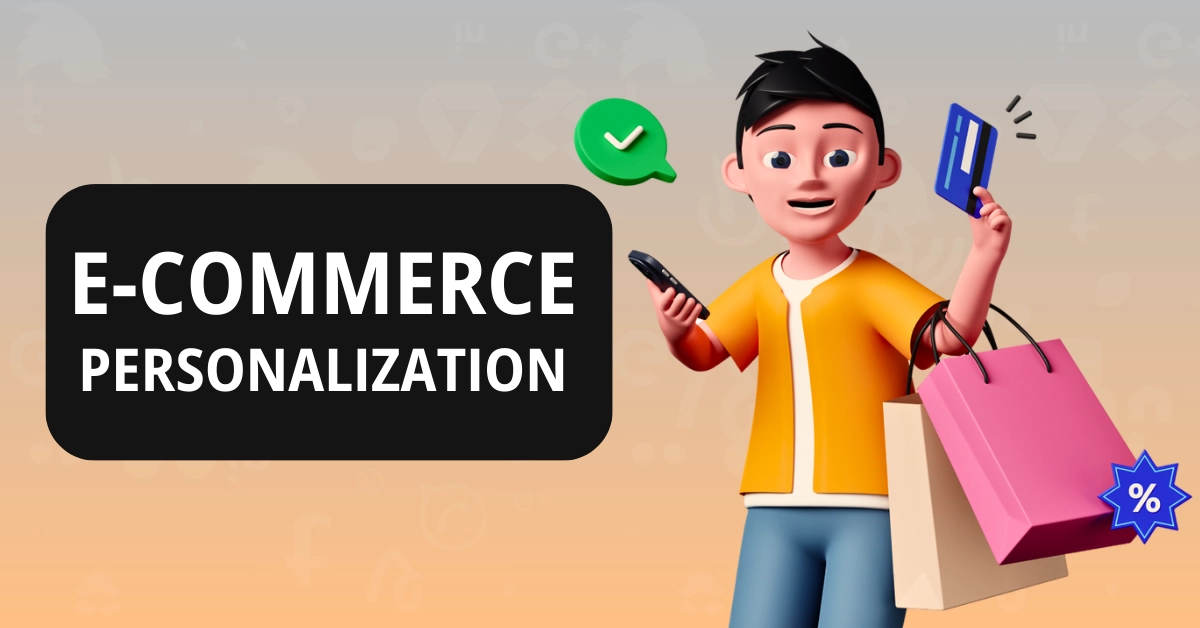In the world of e-commerce, standing out from the competition is more challenging than ever. With countless online retailers vying for attention, customers are bombarded with options, making it easy for them to feel overwhelmed and disengaged. Personalization has emerged as a powerful tool to create meaningful connections with customers, enhancing their shopping experience and driving sales. Here’s why personalization is crucial for e-commerce businesses and how it can significantly impact your bottom line.

Table of Contents
Toggle1. Enhances Customer Experience
Tailored Shopping Journeys
Personalization allows e-commerce businesses to create tailored shopping experiences that cater to individual customer preferences. By leveraging data such as past purchases, browsing history, and demographic information, retailers can present products that align with a customer’s interests, making the shopping journey more enjoyable and efficient.
Improved User Engagement
When customers receive personalized recommendations and offers, they are more likely to engage with the content. Personalized emails, product suggestions, and targeted promotions capture attention and encourage customers to explore the site further, leading to increased time spent on the platform and higher chances of conversion.
2. Increases Conversion Rates
Targeted Recommendations
Personalization enhances the likelihood of conversion by delivering relevant product recommendations based on a customer’s behavior and preferences. Studies show that personalized product suggestions can significantly boost conversion rates, as customers are more inclined to purchase items that resonate with their individual tastes.
Dynamic Pricing and Offers
Personalized pricing strategies, such as tailored discounts based on a customer’s shopping history, can drive urgency and encourage purchases. When customers feel that they are receiving exclusive deals tailored just for them, they are more likely to complete their transactions.
3. Builds Customer Loyalty
Fosters a Sense of Connection
When customers feel understood and valued, they are more likely to develop a strong emotional connection with your brand. Personalization shows that you care about their preferences and are willing to cater to their needs. This connection fosters loyalty, leading to repeat purchases and long-term customer relationships.
Loyalty Programs
Incorporating personalization into loyalty programs can enhance customer retention. By offering personalized rewards, such as discounts on frequently purchased items or early access to new collections, e-commerce businesses can create a sense of exclusivity that keeps customers coming back.
4. Boosts Customer Retention
Understanding Customer Behavior
Personalization allows e-commerce businesses to analyze customer behavior and preferences more deeply. By understanding what drives customer decisions, retailers can adjust their marketing strategies accordingly, leading to increased satisfaction and a higher likelihood of repeat purchases.
Proactive Communication
Utilizing customer data enables proactive communication with customers, such as reminding them of items left in their carts or informing them about new products based on their previous purchases. These timely reminders can encourage customers to return and complete their transactions.
5. Provides Competitive Advantage
Staying Ahead of the Curve
In a saturated e-commerce market, personalization sets businesses apart. Companies that leverage personalization effectively can attract and retain customers more efficiently than their competitors. By continually adapting to customer preferences and behaviors, you can maintain a competitive edge and position your brand as a leader in the industry.
Creating Unique Brand Experiences
Personalization enables brands to create unique experiences that resonate with their target audience. Whether through customized packaging, tailored marketing campaigns, or personalized customer service, these efforts can leave a lasting impression, enhancing brand loyalty and word-of-mouth referrals.
6. Increases Average Order Value
Upselling and Cross-Selling
Personalization can significantly impact average order value through effective upselling and cross-selling techniques. By analyzing customer preferences and purchasing history, e-commerce businesses can recommend complementary products or premium versions of items, encouraging customers to add more to their carts.
Personalized Bundling
Creating personalized product bundles based on customer preferences can also drive higher order values. Offering discounted bundles that align with a customer’s interests can make the purchase more appealing and encourage customers to buy more.
Conclusion
In an increasingly competitive e-commerce landscape, personalization is no longer just a nice-to-have; it’s a necessity. By enhancing the customer experience, increasing conversion rates, building loyalty, and providing a competitive advantage, personalization plays a critical role in driving business success. E-commerce retailers that embrace personalization will not only foster stronger relationships with their customers but also see a positive impact on their bottom line. As technology continues to evolve, investing in personalization will be key to thriving in the future of e-commerce.


No responses yet